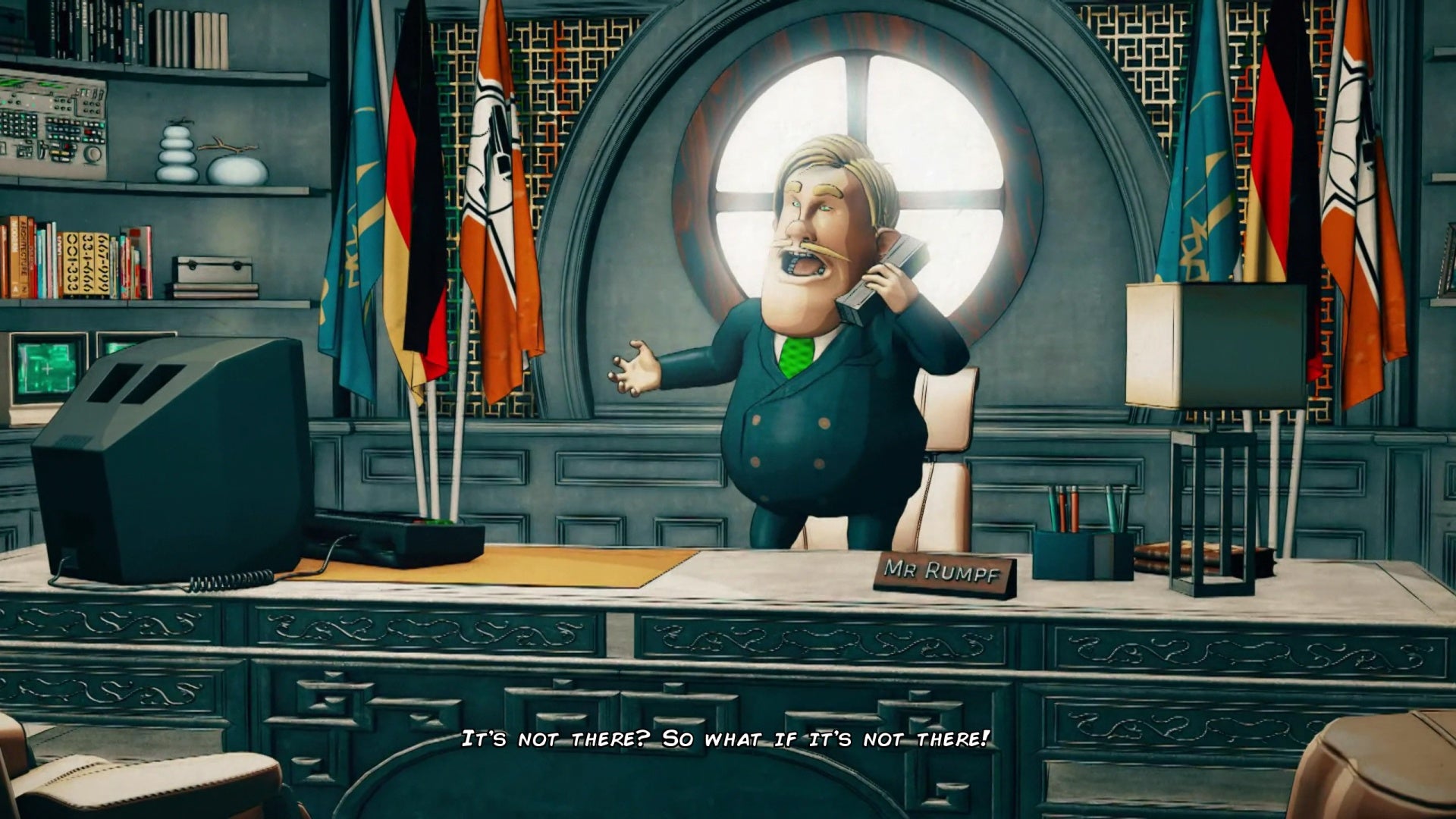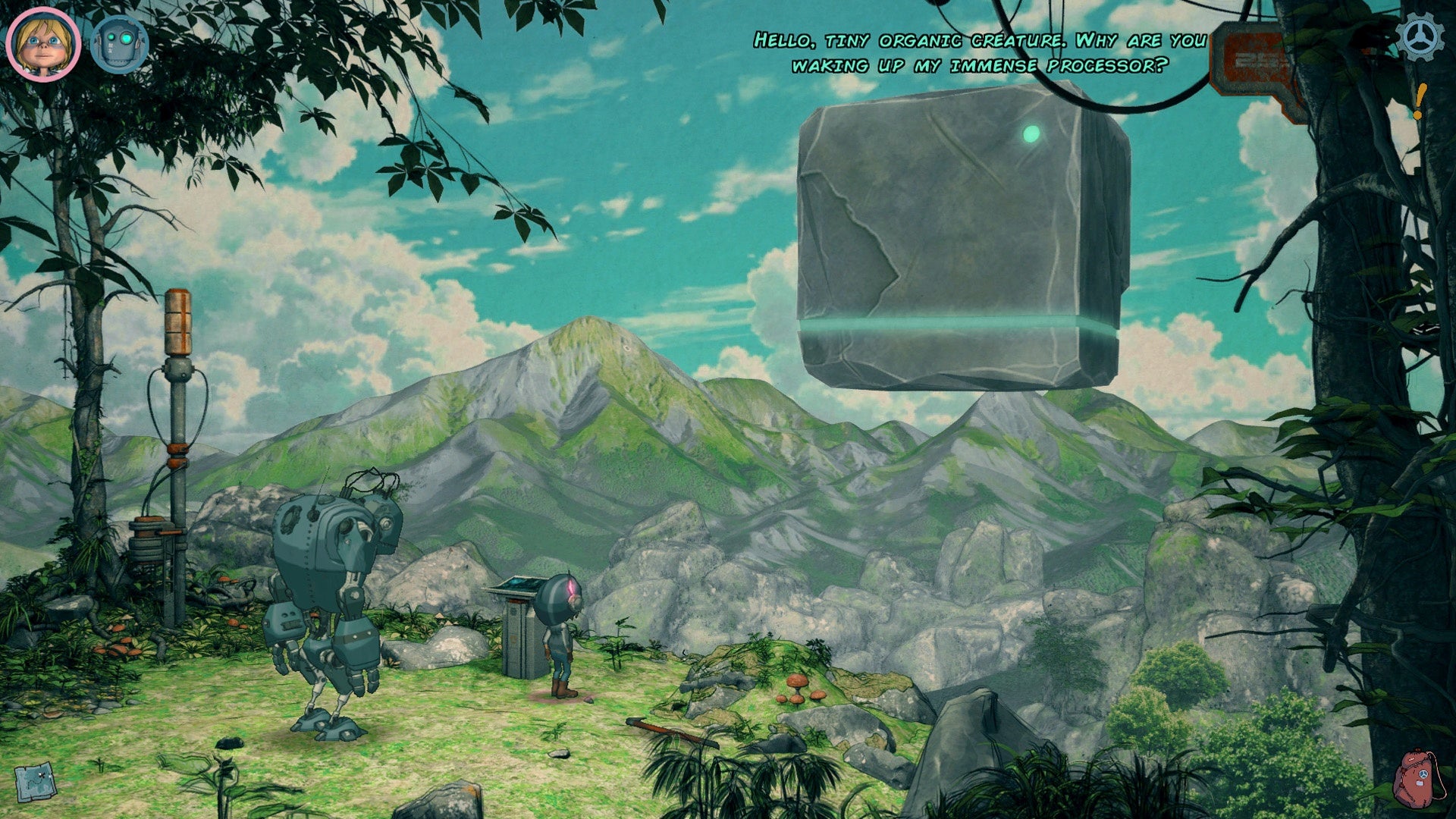That city is Neo-Berlin, and the game takes place on its rough streets in 2062. Our focus is with Tina, a homeless 9-year-old orphan living on a rooftop, and SAM-53, the robot assigned to protect her since birth. Accidentally locating a message within SAM’s memory, one meant for her 10th birthday, Tina discovers it’s from the father she never knew. Having learned that he disappeared 8 years ago, Tina and SAM begin investigating. Despite that cyberpunk-ish backdrop, Encodya attempts to outright declares it isn’t supporting or criticising any political positions. Like an overused Futurama GIF, it opts for neutrality but, considering Neo-Berlin is led by an authoritarian blond-haired politician called “Mayor Rumpf”, that’s hard to believe. Being punched in the face would’ve been less subtle. One character you meet tells you his mundane electrician job is leading him to Marxism, whilst another says robots are “taking all the working class jobs”. Encodya instead claims to offer commentary on how public and private institutions control our lives via the media. Which… you know what, never mind. Neo-Berlin is an oppressive city, bleak in character and atmosphere. Streets are filled with re-election posters, ugly advertisements, tiny living spaces and tech junkies, many of whom have succumbed to “cyberspace addiction”. It’s a bleak setting, but a lovely visual aesthetic gives life to this depressing city and its citizens, created in 3D but stylised to look hand drawn. You’ll be exploring Neo-Berlin’s numerous districts, which vary from a business sector filled with empty shops, residential apartments, record archives and more. It begins with simple tasks like finding Tina a new pair of socks, before looking into her father’s disappearance. Like many point-and-click games of old, I had to tediously comb through these environments to find the required items and present them to the relevant person. You can swap between Tina and SAM as you explore, and people will respond differently to each of them. Unfortunately, this is where things start falling flat. Encodya lists your objectives plainly but what needs doing to execute them is rarely clear. A lot of trial and error is involved, meaning I spent ages looking around Neo-Berlin trying to figure out how to proceed or hoping for a successful item combination. Considering there’s over 100 individual locations to explore across Encodya, this can be time consuming. Some items blend in well with the scenery too, so they can be easily missed. For those more interested in the story, an easy mode is available, but it doesn’t change much. All it does is let SAM offer Tina hints, but they’re not especially specific. If you use them even once, you’re unable to get certain achievements, but I found myself needing them as I ended up getting lost. Encodya isn’t a long game, taking around 10 hours to complete, but that back-and-forth exploration prolongs it more than necessary. As a result, this is a game which requires patience, and one that undeniably dragged when I got stuck. I felt rewarded, at least, for seeing it through. A lot of that comes down to the charming story. SAM and Tina are likeable and they’re accompanied by a fun cast of supporting characters. Even with her bleak circumstances, Tina never feels sorry for herself. She’s got a good heart and does her best with the hand life has dealt when anyone else would despair, backed up by SAM’s cool-headed approach at every step. It offers a great sense of humour too, which occasionally veers into 4th wall breaking. One moment had me questioning a traffic bot and Tina asks, “do you have a quest for me?”, so the bot replies “This isn’t some Polish RPG!”. Not that any similarly themed RPGs come to mind, of course. Despite my frustrations with the puzzles, there’s an engaging story at the core of Encodya. If you’re prepared to accept those flaws, you’d do well to take a look.

